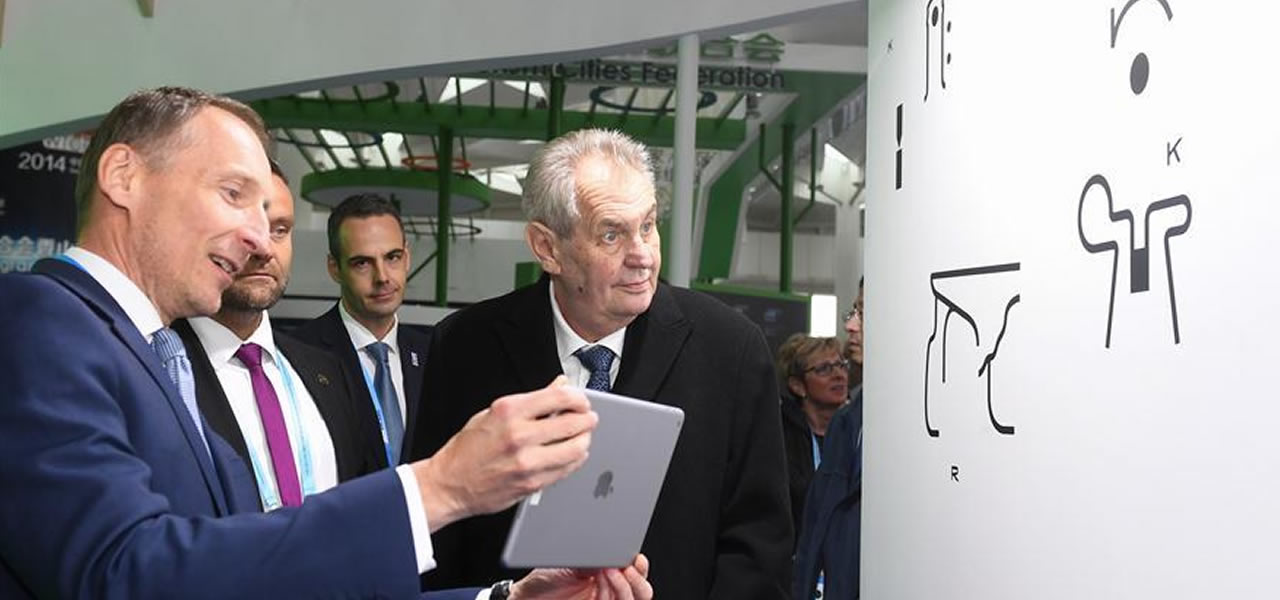President Xi Jinping meets with Czech President Milos Zeman in Beijing, April 28, 2019. [Photo/Xinhua]


President Xi Jinping meets with Czech President Milos Zeman in Beijing, April 28, 2019. [Photo/Xinhua]

Czech President Milos Zeman visits the Czech Republic booth at the International Pavilion of the International Horticultural Exhibition 2019 Beijing, in Beijing, April 28, 2019. [Photo/Xinhua]

China Esteran Airlines
The European Council announced on Monday that its digital COVID-19 vaccination certificate, which is already in use in 12 countries, had been signed into law, paving the way for quarantine-free travel to return in the region.
The certificate allows for travel restrictions to be lifted across all 27 member states of the European Union, and will be available for specific non-EU countries, too.
With the system going live last month, the EU is ahead of schedule with the program that is officially due to start on July 1.
The European Commission first presented a proposal to create a COVID-19 certificate for free travel within the EU in March, and on May 20, lawmakers reached a provisional agreement. It has now passed its legislative process.
In a Twitter post on Monday, President of the European Commission Ursula von der Leyen said: “With the success of our vaccination campaign and this new EU certificate, we can all look forward to the summer, to traveling safely. And we are bringing back the spirit of an open Europe. Our Union is delivering.”
The commission said the certificate is free of charge, secure and accessible to all. It is available in digital format or on paper, and will be proof that a person has been vaccinated against COVID-19, tested negative, or recovered from an infection.
It highlighted that no-one will be banned from traveling if they have not been vaccinated, as the new certificate will not be a pre-condition to free movement across the bloc.
There is no discrimination against individuals who are not vaccinated, according to the commission.
“Persons who are not vaccinated must be able to continue to exercise their free movement rights, where necessary subject to limitations such as testing or quarantine/self-isolation,” a statement from the commission said.
Countries that have already begun using the digital certificate include Bulgaria, Czech Republic, Denmark, Estonia, Germany, Greece, Croatia, Spain, Lithuania, Latvia, Denmark and Poland.
The European Council had said previously that any nation planning to issue certificates needed to guarantee they would be “fully interoperable, compatible, secure and verifiable”.
Greece, which was one of the tourism-reliant nations firmly behind the original proposals for the certificate, announced over the weekend that it would shorten its nightly curfew as COVID-19 cases eased across the country.
Authorities are also relaxing restrictions on venue capacities and permitting live music at outdoor cafes and restaurants.
Switzerland’s government has said it will relax its rules on wearing face masks outdoors at the end of the month, and people with vaccination certificates will be allowed to visit clubs and discos, while shops, restaurants, and leisure and sports facilities would be allowed to raise capacity limits.
With holidaymakers in Europe now free to make travel plans, Britons are being told to stay at home, which has drawn criticism from the United Kingdom’s travel industry.
The government in the UK has been discouraging overseas vacations this summer, despite the nation’s successful vaccination rollout campaign. It is instead focused on promoting domestic tourism, while restrictions remain.
The British government announced on Monday that its June 21 target date for lifting restrictions would be delayed by four weeks, due to a rise in the number of infections caused by the so-called delta variant.
Flight bookings from countries within the EU to Spain and Greece reached near 50 percent of pre-pandemic levels in June, the Financial Times reported, while the number of UK to EU flights is just 20 percent of levels seen before the crisis.
EasyJet’s chief executive, Johan Lundgren, told the FT relaxation and removal of restrictions has “sparked a positive booking momentum across Europe”, adding: “Europe is demonstrating that a safe reopening of travel is possible and so we continue to urge the UK government to do so urgently.”
Andrew Flintham, managing director of tour operator Tui, told the FT “European countries are watching us with bewilderment”.
He added: “My counterparts in Germany, Belgium and the Netherlands are now seeing travel made possible again, with strong bookings for summer and the pent-up demand for travel we know exists in the UK as well.”